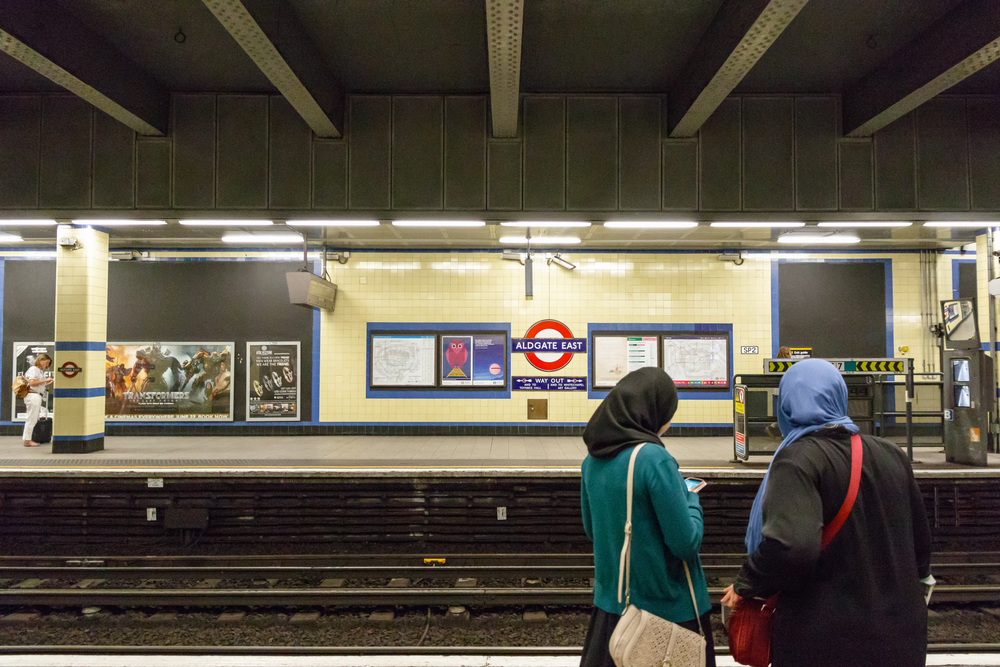Almost half of British Muslim consumers have never used Islamic finance, providing ‘huge opportunity’ for industry – study
Forty-six per cent of British Muslims have never used Islamic finance, says a survey by the Shariah-compliant Gatehouse Bank.
This marks “a wake-up call to the UK Islamic banking industry”, Gatehouse said in a statement on Wednesday.
“Our report highlights that providers of Shariah-compliant finance are missing out because of a largely untapped market for their products,” said CEO Charles Haresnape.
“If nearly half of all Muslim consumers have never used Islamic finance that means hundreds of thousands of potential customers are waiting to be reached,” he added.
The bank said there are “positive findings” underlining the “huge opportunity” to the sector.
“Seven in ten (71 per cent) of Muslim consumers questioned believe that Islamic finance is dedicated to the interests of the community, while 61 per cent believe it works hard to better serve its customers,” said the bank.
The online survey of 1,000 respondents found that of the 40 per cent of respondents who use Islamic finance, current accounts (57 per cent), savings accounts (36 per cent) and credit cards (29 per cent) are the most used products.
Eighty-five per cent of this group said their user experience exceeded their expectations, and 68 per cent said they have a very favourable view of Islamic finance.
The remaining 14 per cent of respondents have used Islamic finance in the past.
The report recommends the industry better communicate what makes its products Shariah-compliant, after finding that 61 per cent of consumers were sceptical about how Islamic the products really are.
“Awareness and perception of Islamic finance among non-users of Islamic products is one of the industry’s biggest obstacles to overcome, with only 53 per cent of non-users knowing anything about it, and only 35 per cent of non-users viewing it favourably,” the bank said.
Twenty financial institutions in the UK offer Shariah-compliant products and services, including five standalone Islamic banks. Gatehouse competes with only one other bank, Al Rayan, for retail consumers.
Gatehouse Bank is a subsidiary of Gatehouse Financial Group. The bank started its retail business in 2015 with savings products to add to real estate investment advisory and commercial financing that it offered from when it was established in 2007. Since 2015 it has also launched home finance and buy-to-let products.
The bank made a loss before tax of 344,521 British pounds ($430,000) in 2017, according to its most recently available financial results. It held 280.5 million pounds ($350 million) in total assets in that year.
HOW REPRESENTATIVE?
Muslims accounted for just under 3 million of the 63.2 million population of the United Kingdom, according to the last official Census in 2011.
Of the country’s Muslims 2.7 million lived in England and Wales, around 77,000 in Scotland and 3,800 in Northern Ireland, when the national census was last conducted.
A substantial 76.5 per cent of the UK’s Muslims were living in just four areas in 2011: London (37.4 per cent), West Midlands (13.9 per cent), North West (13.17 per cent), and Yorkshire and The Humber (12.05 percent).
For Gatehouse Bank’s survey, conducted in April 2019, 73 per cent of respondents came from these same four areas, and the bank told Salaam Gateway it is “confident that this is representative of the UK.”
However, the survey is skewed towards London, where 48 per cent of respondents reside, as compared to 37.4 per cent in the Census 2011.
Further, 58 per cent of the bank’s survey respondents held a Bachelor’s, Master’s or higher degree. This compares disproportionately with only 24 per cent in the 2011 Census, according to a report by the Muslim Council of Britain.
“Since a large portion of the sample live in London and are young, and we know that higher education among British Muslims is increasing, it’s not unrealistic to conclude 58 per cent is a representative figure,” Gatehouse Bank told Salaam Gateway in an emailed response to questions.
The percentage of British Muslims with at least a Bachelor’s degree grew from 20.6 per cent in Census 2001 to 24 per cent for Census 2011.
LINK TO JOB ROLES
Gatehouse’s survey did not address salary levels or income brackets but it did look at job roles.
Thirty-three per cent of respondents were in higher managerial roles, 21 per cent in intermediate managerial, 17 per cent supervisory, clerical or junior managerial and 13 per cent were skilled manual workers.
Gatehouse Bank told Salaam Gateway this should give “an indication of the difference in views between those with higher and lower salaries”.
According to the bank, those in higher managerial roles are more likely to be familiar with Islamic finance (93 per cent) in comparison to those in less senior roles, as well as being familiar with Shariah-compliant finance (86 per cent) and ethical finance (83 per cent).
“75 per cent of those in higher managerial roles have used Islamic finance compared to 33 per cent of intermediate managerial, with 66 per cent of those in senior roles having purchased an Islamic finance product in the past week,” the bank told Salaam Gateway in an email.
“Those in senior roles are more positive about their experience with Islamic products/services – 77 per cent say their experience was ‘much better than expected’ while 91 per cent of those in higher managerial roles have favourable views of Islamic finance.”
According to the Muslim Council of Britain report, a total of around 12.6 per cent of UK’s Muslims were in three categories of higher managerial, administrative, and professional occupations, based on the 2011 Census.
(Reporting by Emmy Abdul Alim; Editing by Brinda Darasha)
© SalaamGateway.com 2019 All Rights Reserved
